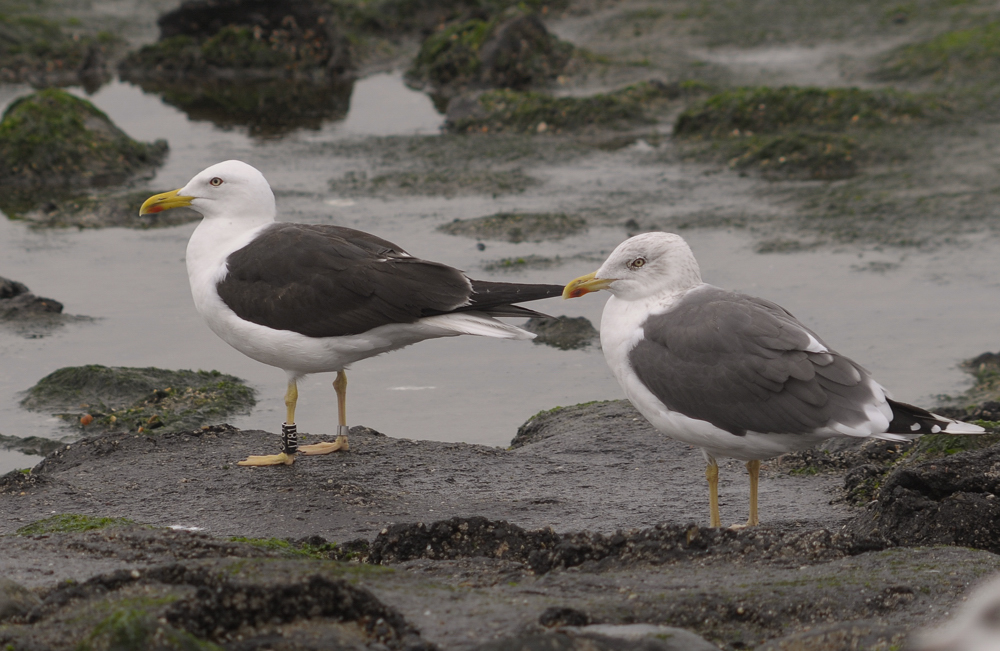 nominate Lesser Black-backed Gull (L. f. fuscus)
nominate Lesser Black-backed Gull (L. f. fuscus)
(last update:
Amir Ben Dov (Israel)
Hannu Koskinen (Finland)
Mars Muusse (the Netherlands)
fuscus 1cy July
fuscus 1cy Aug
fuscus 1cy Sept
fuscus 1cy Oct
fuscus 1cy Nov
fuscus 1cy Dec
fuscus 2cy Jan
fuscus 2cy Feb
fuscus 2cy March
fuscus 2cy April
fuscus 2cy May
fuscus 2cy June
fuscus 2cy July
fuscus 2cy Aug
fuscus 2cy Sept
fuscus 2cy Oct
fuscus 2cy Nov
fuscus 2cy Dec
fuscus 3cy Jan
fuscus 3cy Feb
fuscus 3cy March
fuscus 3cy April
fuscus 3cy May
fuscus 3cy June
fuscus 3cy July
fuscus 3cy August
fuscus 3cy Sept
fuscus 3cy October
fuscus 3cy Nov
fuscus 3cy Dec
fuscus 4cy Jan
fuscus 4cy Feb
fuscus 4cy March
fuscus 4cy April
fuscus 4cy May
fuscus 4cy June
fuscus 4cy July
fuscus 4cy Aug
fuscus 4cy Sept
fuscus 4cy Oct
fuscus 4cy Nov
fuscus 4cy Dec
fuscus ad Jan
fuscus ad Feb
fuscus ad March
fuscus ad April
fuscus ad May
fuscus ad June
fuscus ad July
fuscus ad Aug
fuscus unringed Aug
fuscus ad Sept
fuscus ad Oct
fuscus ad Nov
fuscus ad Dec
Larus fuscus fuscus 4cy J781, October 06 2009, Westkapelle, the Netherlands. Pictures Ies Meulmeester & Theo Muusse.
J781 was ringed as pullus on 27 July 2006 on Nordland (Norway)
Ringed as L.f. fuscus in B Buholmen, Sørhorsvær, Sømna, Nordland (65°18'26"N 011°37'30"E) in the norther part of Norway. Note the very dark black upper-parts with brownish hue, completely white head, and a mirror on just P10, not on P9. By early October, this bird still hasn't started the complete moult: P1-P10 are present.
The only immature features on this 4cy are on the bill which show some black on the cutting edges, but the tail and under-wing is complete white and in all other respects it look like a adult. This individual looks more robust and powerful with strong head and heavier bill which presumed indicate this is a male, but note that there's also a lot variation between individuals. (With thanks to Visa Rauste for his comments on this bird).
Morten Helberg, the ringer replied:
This is from the nominate fuscus area in Helgeland. As I told in Scotland, I have only seen 1-3 pale birds in this areas, where it breeds in a population of ca 600 pairs (Horsvær and Hortavær included). This bird, J781, was ringed in the B subcolony, I have never had pale birds there at all. But sub-colony B is only 500 meters to the C colony were I have seen a pale bird, not breeding but just resting at the shore.
It is very good that you (referring to the comments by Visa Rauste) state that body structure varies; that is my impression as well. I have a few slender built birds breeding in southern Norway (fitting the jizz of nominate fuscus), for example. But overall of course, dark fuscus type birds normally are slender compared to pale birds.
More information about migration strategies in Norwegian fuscus and the ringing programme in the three northern counties of Norway: Nordland, Troms and Finnmark, can be found here: The summary for juveniles can be found in the fuscus 1cy October section, the summary for adults can be found in the fuscus adult October section.
Morten Helberg, Geir Systad, Ingve Birkeland, Nils Lorentzen & Jan Bustnes published an article about this research in Ardea 97, 2009, titled: Migration patterns of adult and juvenile Lesser Black-backed Gulls Larus fuscus from northern Norway. The complete PDF can be found HERE.




